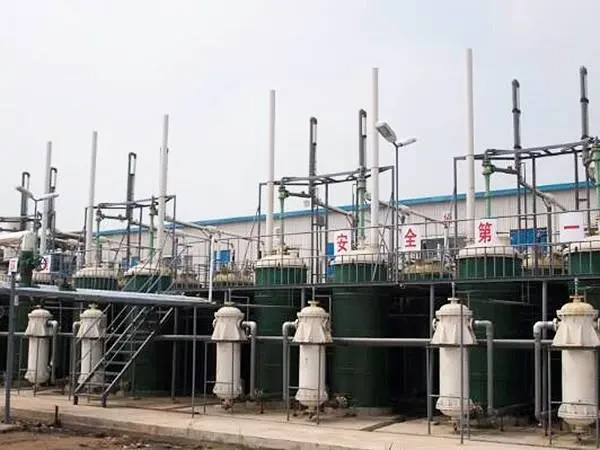



Chemicals Used in Wastewater Treatment Processes and Their Importance for Environmental Safety
The Role of Sewage Treatment Chemicals in Wastewater Management
Sewage treatment is a critical process in modern sanitation, aimed at removing contaminants from wastewater to protect public health and the environment. The chemicals used in sewage treatment play a significant role in enhancing the efficiency of treatment processes, improving the quality of treated water, and facilitating the safe discharge of effluent into water bodies. This article delves into the various sewage treatment chemicals, their functions, and their importance in wastewater management.
Types of Sewage Treatment Chemicals
1. Coagulants and Flocculants These chemicals are essential in the primary treatment stage of sewage. Coagulants, such as aluminum sulfate (alum) and ferric chloride, help to aggregate suspended particles into larger clumps or flocs. This process, known as coagulation, is followed by flocculation, where the clumped particles are further agitated to form even larger aggregates. The resultant larger particles can then be easily removed through sedimentation, leading to clearer water.
2. Disinfectants After the wastewater has undergone primary and secondary treatment, disinfection is crucial to eliminate pathogenic microorganisms. Common disinfectants include chlorine, ozone, and ultraviolet (UV) light. Chlorination is widely used due to its effectiveness and ease of application, while UV disinfection is favored for its environmental benefits, as it does not introduce harmful chemicals into the effluent.
3. Chemical Oxygen Demand (COD) Reducing Agents These chemicals, such as hydrogen peroxide and sodium bisulfite, are employed to reduce the COD of wastewater. A high COD indicates a large amount of organic pollutants, necessitating reduction for safer disposal and compliance with environmental regulations. By using these agents, treatment facilities can ensure that the effluent released into the environment meets regulatory standards.
4. pH Adjusters Maintaining an appropriate pH level is vital for optimal biological activity during secondary treatment processes. Chemicals like lime and sulfuric acid are used to adjust the pH of sewage. By ensuring the pH is within an ideal range, these chemicals enhance the performance of microbial populations responsible for breaking down organic matter.
5. Nutrient Additives In some cases, particularly during nutrient removal processes, chemicals like ammonium sulfate and phosphorus-rich compounds are introduced to stimulate the growth of specific bacteria that aid in the breakdown of organic material. This ensures that essential nutrients are adequately addressed, preventing issues such as eutrophication in receiving water bodies.
sewage treatment chemicals

Importance of Sewage Treatment Chemicals
The use of chemicals in sewage treatment is not solely about compliance with regulations but also about safeguarding public health and the environment
. Effective treatment chemicals contribute to- Reducing Health Risks Contaminated wastewater can harbor numerous pathogens. By utilizing disinfectants and coagulants, treatment facilities significantly lower the risk of waterborne diseases, thus protecting communities.
- Enhancing Environmental Protection Treated effluent is often discharged into rivers, lakes, or oceans. Employing the right treatment chemicals ensures that the water released is of high quality, thus protecting aquatic ecosystems from harmful pollutants.
- Supporting Resource Recovery Advanced sewage treatment processes aim to recover valuable resources such as biogas, fertilizers, and reclaimed water. The use of specific chemicals can streamline these processes, contributing to a circular economy.
Conclusion
Sewage treatment chemicals are indispensable in managing wastewater effectively. Their diverse functionalities, from coagulation and disinfection to nutrient management, contribute to cleaner discharge and improved environmental health. As urbanization increases and water scarcity becomes a pressing issue, the role of sewage treatment chemicals will undoubtedly grow, leading to more innovative and sustainable practices in wastewater management. Investment in research and development of these chemicals will further enhance treatment efficacy, ensuring a cleaner and safer environment for future generations.
-
Why Sodium Persulfate Is Everywhere NowNewsJul.07,2025
-
Why Polyacrylamide Is in High DemandNewsJul.07,2025
-
Understanding Paint Chemicals and Their ApplicationsNewsJul.07,2025
-
Smart Use Of Mining ChemicalsNewsJul.07,2025
-
Practical Uses of Potassium MonopersulfateNewsJul.07,2025
-
Agrochemicals In Real FarmingNewsJul.07,2025
-
Sodium Chlorite Hot UsesNewsJul.01,2025










